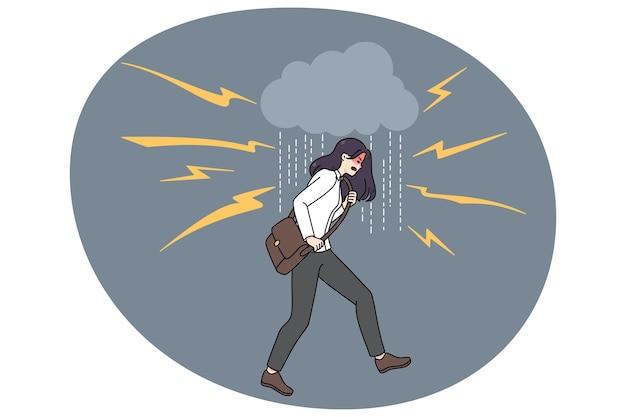Have you ever felt emotionally distressed due to police misconduct? Perhaps you have witnessed police officers use excessive force, racial profiling, or unlawful arrest. Whatever the reason, you may be wondering if you have any legal recourse to sue the police for emotional distress. In this blog post, we will explore the answer to this question and provide you with information on how to sue the police, the cost of doing so, and common complaints against police officers. So, let’s get started!
Can You Sue The Police For Emotional Distress
If you’ve ever watched an episode of Cops, you’ll know that the police can be a little intense. It’s not uncommon for people to feel a sense of fear or apprehension when interacting with law enforcement. But what happens if that fear turns into emotional distress? Can you sue the police for causing you emotional harm?
What is Emotional Distress
Before we answer that question, let’s first define what emotional distress is. Emotional distress, also known as mental anguish, is a psychological condition that results from a traumatic or stressful event. It can manifest in a variety of ways, including anxiety, depression, insomnia, and even physical symptoms such as headaches or stomach issues.
Can You Sue The Police
Now that we understand what emotional distress is let’s tackle the big question: Can you sue the police for causing you emotional harm? The short answer is yes, you can. However, it’s not an easy process and requires a lot of evidence to prove your case. You will need to provide substantial proof that the police officer’s actions directly caused your emotional distress.
What Evidence Do You Need
So, what kind of evidence do you need to provide in order to sue the police for emotional distress? Here are a few things that can help support your case:
- Medical Records: If you sought treatment for your emotional distress, make sure to keep all your medical records. This can include therapy sessions, prescriptions, and any hospital visits.
- Eye-Witness Statements: If there were any witnesses to the incident that caused your emotional distress, try to get written statements from them.
- Expert Opinions: It can be helpful to consult with an expert in mental health to provide testimony about the impact of the incident on your emotional health.
How To Proceed
If you decide to sue the police for emotional distress, it’s important to proceed with caution. It’s a complicated process that requires strong evidence and a lot of stamina. But don’t let that discourage you from seeking justice if you feel like you’ve been wronged. It’s your right as a citizen to hold law enforcement accountable for their actions.
In conclusion, suing the police for emotional distress is possible, but it isn’t easy. It’s a process that requires a lot of evidence and expert testimony. However, it’s important to remember that emotional distress is a serious condition that can impact your life in significant ways. If you feel like you’ve been wronged by law enforcement, don’t be afraid to speak out and seek justice.
Can I Sue for My Emotions
Let’s face it, emotions can be messy. They can make us feel happy, sad, angry, anxious, or even make us want to cringe. But can we sue someone for making us feel these emotions? Well, technically, yes. But the real question is whether or not it’s worth it.
Emotional Distress
To win an emotional distress lawsuit, you need to prove that you suffered severe emotional harm as a direct result of someone else’s actions. This type of harm can manifest in the form of depression, anxiety, PTSD, or even physical ailments like insomnia or ulcers.
The Police Factor
Now, let’s take this a step further. Can you sue the police specifically for causing you emotional distress? Well, it’s not impossible, but it’s definitely not easy. In most cases, law enforcement officials have legal immunity when performing their duties, so you’ll have to prove that they acted recklessly or intentionally caused you harm.
The Emotional Rollercoaster
Let’s be real here. Emotions come and go. You might be on an emotional high one day and a low the next. The point is that emotions are not predictable or consistent. So even if you do win an emotional distress lawsuit, you might not be awarded a substantial amount of money. And even if you are, it might not be worth the time and effort you put into the case.
In conclusion, yes, you can sue for emotional distress, but it’s not as simple as it sounds. It’s important to weigh the pros and cons and consider whether or not it’s worth pursuing legal action. Emotions are a part of life, and sometimes it’s better to focus on building resilience rather than seeking compensation.
How Much Does It Cost to Sue the Police
Suing the police can be a costly affair, but the price of emotional distress can be too high to ignore. The cost of legal fees, court filing fees, and other associated costs depend on several factors.
Attorney Fees
The first and most significant cost is the attorney fees. Hiring an experienced attorney who specializes in police misconduct cases can be costly. But remember, you get what you pay for, and it’s better to have a competent lawyer by your side when suing the police.
Court Filing Fees
Another cost associated with filing a lawsuit is the court filing fees. These fees vary depending on the state and the type of lawsuit. Typically, the court filing fees range from $100 to $500. This amount is separate from the attorney’s fees and will need to be paid regardless of the outcome of the case.
Other Associated Costs
There might be other costs associated with suing the police. For example, if you need to hire expert witnesses to prove your case, you’ll have to pay their fees. These fees can range from several hundred to several thousand dollars, depending on the witness’s expertise and experience.
In conclusion, suing the police for emotional distress can be an expensive proposition. The cost of attorney fees, court filing fees, and other associated costs can add up quickly. However, if you have a valid case, it’s worth pursuing justice and holding the police accountable for their misconduct. Remember, peace of mind is priceless!
Lawyers That Sue Police Departments Near Me
So, you’ve finally decided to take legal action against the police department for causing you emotional distress, and now you’re searching for a lawyer to represent you. Well, fear not, my friend because you’re not alone in this fight. Many people have taken this route before you, and they’ve come out victorious.
What to Look for in a Lawyer
When it comes to choosing a lawyer, you don’t want to hire just any attorney that crosses your path. You need someone who understands your situation, someone who has experience dealing with police brutality cases. Here’s a checklist of what to look for:
- A lawyer who specializes in police brutality cases
- A lawyer with a good track record
- A lawyer who is easy to communicate with
- A lawyer who has a good reputation in the legal community
- A lawyer who knows how to fight for your rights
- A lawyer who inspires confidence
- A lawyer with a unique approach to your case
How to Find a Lawyer Near You
Now that you know what to look for in a lawyer let’s talk about how to find one “near you.” Well, the good news is that there are many lawyers out there who specialize in these cases. So, all you need to do is look in the right places:
- Online directories: There are several online directories that list lawyers in your area. Some popular ones include FindLaw and Avvo.
- Lawyer referral services: There are organizations that offer lawyer referral services. They can connect you with a lawyer who specializes in police brutality cases.
- Word-of-mouth: Ask your friends, family, or colleagues if they know any lawyers who have experience in this area.
Finding a lawyer who can sue the police department on your behalf for emotional distress can be a daunting task. However, with the right research, you’ll be able to find an attorney who can fight for your rights and help you get the justice you deserve. Remember, you don’t have to do this alone. There are many people out there who will support you in your journey. So, stay strong, and don’t give up!
Can You Sue a Police Department in Missouri
If you live in Missouri and feel like the police have caused you emotional distress, you might be wondering if you can sue the police department. Well, you’re not alone! Many people are asking the same question, and we’ve got the answers for you.
Understanding the Lawsuit
First of all, it’s important to note that it’s possible to sue a police department for emotional distress. However, this type of lawsuit is not easy to win. You will have to prove that the actions of the police department caused you emotional distress and that the department was negligent in its actions.
Consult a Lawyer
It’s a good idea to speak with a lawyer before you decide to sue. A lawyer can help you determine if you have a strong case and can represent you in court. Keep in mind that the laws regarding emotional distress can be complicated, and you’ll need someone with expertise to help guide you through the process.
Missouri Law
In Missouri, you can sue a police department for emotional distress, even if the police officer acted within the scope of their duties. However, there are certain requirements that must be met to win the case.
Statute of Limitations
Also, it’s essential to note that there’s a statute of limitations for emotional distress lawsuits in Missouri. You have only two years from the date of the incident to file a lawsuit.
In conclusion, suing a police department in Missouri for emotional distress is possible but challenging. It would be best if you spoke to a lawyer before taking any action. With the right legal representation and a strong case, you may be able to win your lawsuit and get compensated for the harm caused.
What’s the Deal with Police Complaints
When it comes to dealing with law enforcement, it’s not uncommon to experience some level of frustration. After all, they have a tough job, and sometimes it feels like they’re just out to get us. But what are the most common complaints against police officers, and do they hold any weight when it comes to suing for emotional distress?
Use of Force
One of the most common complaints you’ll hear against the police is excessive use of force. We’ve all seen the videos on the news of officers using takedowns, pepper spray, and even firearms to subdue suspects. While we certainly want our police officers to be able to keep us safe, there’s a fine line between using force and using excessive force.
Harassment
Have you ever been pulled over for a broken taillight, only to feel like the officer was needlessly giving you a hard time? Harassment is another common complaint against law enforcement. From racial profiling to unwarranted searches, police officers are not immune to power trips.
Failure to Follow Procedure
Police officers are trained to follow specific procedures when making arrests or conducting searches. However, sometimes they cut corners or ignore protocol altogether. This can lead to innocent people being arrested or charged with crimes they didn’t commit.
While not all police officers are bad, there are certainly some bad apples in the bunch. If you feel like you’ve been wronged by a police officer, you may have a case for emotional distress. Just be sure to consult with a lawyer who specializes in these types of cases before moving forward.
How to Hold Police Accountable for Violating Your Civil Rights
Have you ever been mistreated or abused by the police? It’s not uncommon for people to feel powerless and helpless in such situations. The good news is that there are legal avenues you can pursue to hold the police accountable for their actions. One such avenue is by suing them for violating your civil rights.
Step 1: Document Everything
The first step in suing the police for violating your civil rights is to document everything thoroughly. Make sure you write down the date, time, and location of the incident. Record the names and badge numbers of the officers involved, as well as the names and contact information of any witnesses. Take photos and videos of any injuries or damages, and keep all medical records if applicable.
Step 2: Find a Civil Rights Attorney
To sue the police for violating your civil rights, you need to find a qualified civil rights attorney. Look for someone who specializes in police misconduct and civil rights cases. Make sure you do your research and find the best attorney you can afford.
Step 3: File a Complaint
Before you can sue the police, you need to file a complaint with their department. You can do this by contacting the Internal Affairs Division or Police Complaint Board in your area. Make sure you include all the details of the incident and any evidence you have collected.
Step 4: File a Lawsuit
If your complaint is not taken seriously or the department fails to take action, you may want to proceed with a lawsuit. Your civil rights attorney will guide you through this process and help you file the necessary paperwork.
Step 5: Be Patient
Suing the police is a long and arduous process, so be patient. Expect the case to take months or even years to resolve. Stay in contact with your attorney, attend all court hearings, and continue to document any further interactions with the police.
Remember, it’s your right to seek justice for any misconduct or mistreatment you’ve experienced at the hands of the police. By following these five steps, you can ensure that your civil rights are protected, and the police are held accountable for their actions.
Examples of Civil Rights Violation by a Police Officer
Police officers are bound by a set of laws and regulations that dictate how they ought to treat citizens. However, some police officers abuse their power and violate citizens’ civil rights. Below are some examples of police officers violating citizens’ rights that may entitle them to sue the police for emotional distress:
False Arrest
Police officers have the power to arrest individuals if they have probable cause that a crime has been committed. However, if a police officer arrests someone without probable cause, it’s a false arrest. For example, if a police officer arrests someone for filming a traffic stop from a public sidewalk, the officer has violated that person’s civil rights.
Use of Excessive Force
Police officers are allowed to use force when necessary, but the force must be reasonable. If a police officer uses force that is beyond what is necessary to make an arrest, it’s a violation of a citizen’s civil rights. For example, if an officer uses a chokehold on a suspect who is cooperating, it may be considered excessive force.
Racial Profiling
Racial profiling occurs when a police officer stops, searches or arrests someone based solely on their race or ethnicity. It’s illegal, and it’s a civil rights violation. For instance, if a police officer stops a black man driving a luxury car because the officer assumes the man can’t afford it, it’s racial profiling.
Unlawful Search and Seizure
Police officers have the power to search or seize property with a warrant or under certain circumstances. However, if an officer conducts a search without probable cause, or a warrant, it’s an unlawful search and seizure. For instance, if an officer searches someone’s house without a warrant or probable cause, it’s a violation of their civil rights.
In conclusion, citizens have the right to sue police officers for violating their civil rights. Keep in mind that this is not an exhaustive list of civil rights violations by police officers. If you believe you have been a victim of police misconduct, it’s essential to contact an attorney who specializes in these cases.



